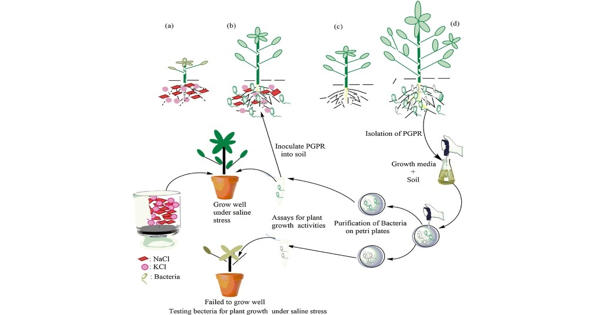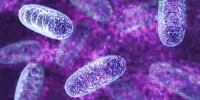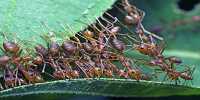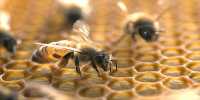Plant roots are home to a diverse range of microorganisms that can have either a negative or positive impact on plant health and growth. A recent study by scientists reveals an unusual interdependence: maize can attract special soil bacteria, which in turn help the plants grow better. In the long run, the findings could be used to develop new varieties that use less fertilizer and thus have a lower environmental impact.
Plants absorb nutrients from the soil via their roots, as every third-grader understands. It is likely that the fact that they also release substances into the soil is less well known. And this appears to make plants’ lives a lot easier.
Bacteria, fungi, actinomycetes, protozoa, and algae are among the microscopic life forms found in soil. Bacteria are by far the most common of these microorganisms (i.e., 95 percent ). For some time, it has been known that soil contains a large number of bacteria (often around 108 to 109 cells per gram of soil) and that the number of culturable bacterial cells in soil is only about 1% of the total number of cells present.
A recent study by scientists sheds light on an unusual interdependence: Maize can attract special soil bacteria that, in turn, help the plants to grow better.
That is, at least, the current study’s conclusion. The researchers who took part in the study looked at several maize varieties with varying yields. In their search for the cause, they discovered flavone synthase 2. “The high-yielding inbred line 787 we studied contains large amounts of this enzyme in its roots,” explains Dr. Peng Yu of the University of Bonn’s Institute of Crop Science and Resource Conservation (INRES). “It uses this enzyme to produce specific molecules from the flavonoid group, which it then releases into the soil.”
Flavonoids are responsible for the color of flowers and fruits. They serve a different purpose in the soil, however: they ensure that very specific bacteria accumulate around the roots. These microbes, in turn, cause the formation of additional lateral branches on these roots, which are referred to as lateral roots. Prof. Dr. Frank Hochholdinger of the Institute of Crop Science and Resource Conservation explains, “This allows the maize plant to absorb more nitrogen from the environment” (INRES). “This means the plant grows faster, which is especially important when nitrogen supplies are limited.”
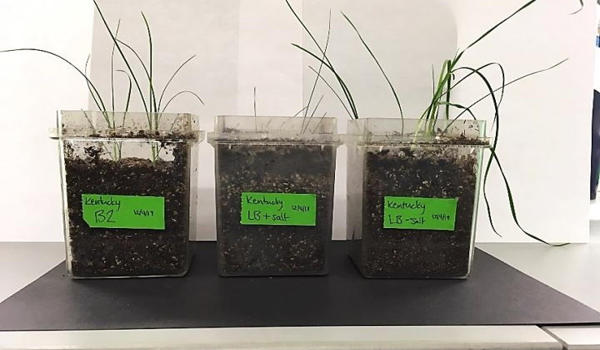
Sterilized soil did not cause a growth spurt
The researchers were able to demonstrate how well this works in experiments. They achieved this by cultivating a maize variety known as LH93, which is known for producing small plants. However, when they planted this variety in soil previously occupied by the high-performance line 787, LH93 grew significantly better. When the botanists sterilized the soil before repotting, the effect vanished. Because the enriched bacteria were killed during sterilization, this demonstrates that they are indeed responsible for the turbo growth.
In another experiment, the researchers were able to show that the microorganisms do, in fact, promote the growth of lateral roots. They used a maize variety that, due to a mutation, is unable to form lateral roots. However, when they added the bacterium to the soil, the mutant’s roots began to branch out. It is not yet clear how this effect occurs. Furthermore, with microbial support, maize coped much better with nitrogen deficiency.
Results may contribute to more sustainable agriculture
Nitrogen is so important for plant growth that farmers use fertilizer to artificially increase its amount in the soil. However, some fertilizer is washed off the fields by rain and enters streams or groundwater. It can also enter the atmosphere as nitrogen oxides or ammonium gas, contributing to the greenhouse effect. Furthermore, the production of nitrogenous fertilizers necessitates a significant amount of energy. “We might be able to significantly reduce environmental pollution if we breed crops that can improve their nitrogen usage with the help of bacteria,” Yu hopes.
The study demonstrates that plants help to shape the conditions of the soil in which they grow in ways that benefit them in the long run. However, until now, this aspect of breeding has been overlooked. Dr. Peng Yu adds that many interactions between the root system and soil organisms are still poorly understood. He’d like to help change that: He has recently assumed leadership of an Emmy Noether junior research group at the University of Bonn, which is devoted to this very topic. The Deutsche Forschungsgemeinschaft (DFG, German Research Foundation) offers young researchers the opportunity to qualify for a university professorship within six years through its Emmy Noether Program.
